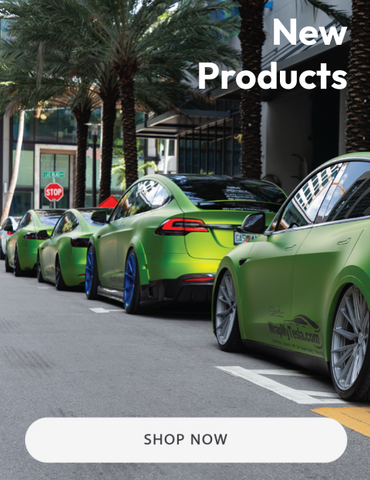It's settled, Tesla is a technology company
Investopedia* recently took issue with both Tesla [NASDAQ: TSLA] bulls and bears. Wall Street tends to be myopic when considering Tesla — most investors will view the company through an "automotive" lens only. It's argued that all Wall Street "talks about [with Tesla] is cars and the auto industry. Is Apple a phone maker or is it a tech company that makes phones? There's a big difference. A phone for the most part is a commoditized product. They are cheap to make and the barrier to entry seems pretty low. Or is Apple a tech company that makes software and an ecosystem that the phone serves as merely a gateway to the user?"
Above: Inside a Tesla store (Instagram: marysia_mendakiewicz)
Taking this into consideration, "is Tesla an automaker like Ford, GM or Daimler? Or does it resemble a tech company such as Google, Microsoft and Apple? It is an important question; valuations are very different. Sure, Tesla makes a car, just like Apple makes an iPhone. Tesla is, and does, have an ecosystem, with its software that runs the car, [its Superchargers and its] autonomous driving network with machine learning and over-the-air updates. When was the last [time] Ford, GM or Daimler pushed out an autonomous driving update over the air?" Indeed. Tesla's emphasis on tech allows them key advantages throughout their ecosystem. For one, Tesla's self-driving leadership position has (in and of itself) significant value. Case in point — Intel just bought Mobileye for a whopping $15 Billion.
Above: Cathie Wood, Ark Invest's chief executive officer and chief investment officer, explains why she is excited about the future of Tesla (Youtube: Bloomberg Technology)
So how do you value a company like Tesla? "Trying to value something that is changing the landscape of an industry is nearly impossible. The market has already told us what TSLA is worth: like it or not, over $40 billion. Knowing what it will be worth three years from now is the impossible task. I'd argue with anyone that tries to make a case for a Tesla valuation three years, let alone two years, out. It is nearly impossible to predict any of the variables that go into any of the models used to figure these valuations out. None. Can you tell us what the risk-free rate will be? How many cars Tesla can produce? What will be the demand for the cars? One can't, so it is not even worth trying."
Above: Tesla solar roof, Model 3, high power wall charger, and Powerwall 2 (Image: InsideEVs)
And here's the ongoing flaw: "analysts and investors get hung up with companies beating or missing analyst expectations because investing is all about expectations. In this case, despite beating or missing guidance and expectations, revenue growth has been consistent and stable. Revenue growth should be the main driving point when investing in a company like TSLA. Is the company consistently growing revenue at a faster pace, or is it stalling out and hitting stumbling blocks? Is the company consistently producing more cars and making more deliveries? TSLA has been growing all of these metrics regularly, which would indicate the company is producing cars into high demand."
Above: In blue, Tesla's steep revenue growth (Source: Investopedia*)
Viewing Tesla as an automaker only is far too limiting, instead "TSLA is a technology company that is producing cars." After all Tesla's unique tech advantage allows them to go far beyond electric cars and self-driving leadership (and expertise). It allows the business to evolve into a superior battery manufacturing company, stationary storage provider and solar roof pioneer. Bringing all these disparate pieces together along with the much-anticipated Model 3 will be hard to forecast. That said, "how much is a company worth that is currently on an exponential growth curve, and about to do the impossible? It looks we are about to find out. Odds are the answer is: a lot more than its current value."
===
*Source: Investopedia




